8/24/2023 8:18:40 AM
Deputy Commissioner Evan Rowe
This summer, I got to visit with two Department of Employment and Economic Development (DEED) partners that are revolutionizing accessible technology.
I started at the Courage Kenny Rehabilitation Institute in Golden Valley, one of the top inpatient and outpatient rehabilitation service providers in the state, supporting Minnesotans with disabilities through physical, speech and occupational therapy.
Kathy Woods is Courage Kenny's Manager of Driver Assessment and Training. Driving is a critical skillset that makes opportunities accessible. Kathy and her team work with clients to see whether they can learn to drive safely, which requires a detailed assessment and support. Kathy's team then helps the individual secure any needed accommodations to do so successfully.
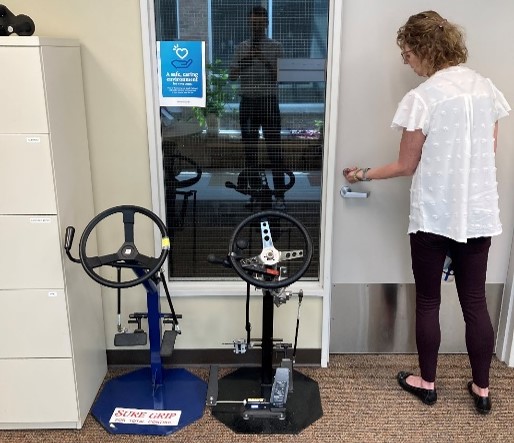
Next, we checked out the assistive technology. Matt White, an occupational therapist and Courage Kenny's Assistive Technology Supervisor, showed off many fascinating tools and technologies — from e-ink monitors (which are high-contrast and easier to view for people with vision loss) to a spoon that senses which direction is up and automatically adjusts, making it easier for people with tremors or other physical disabilities to eat.
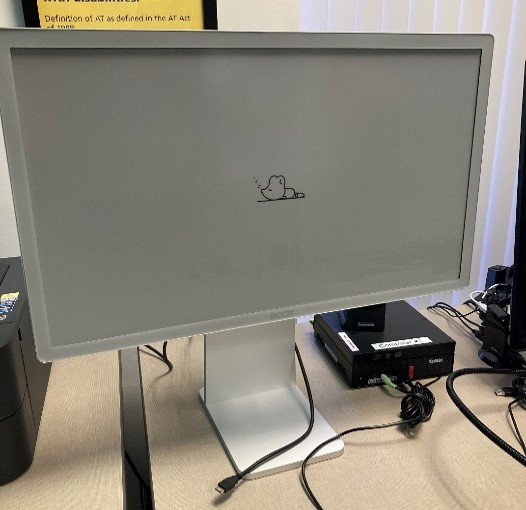
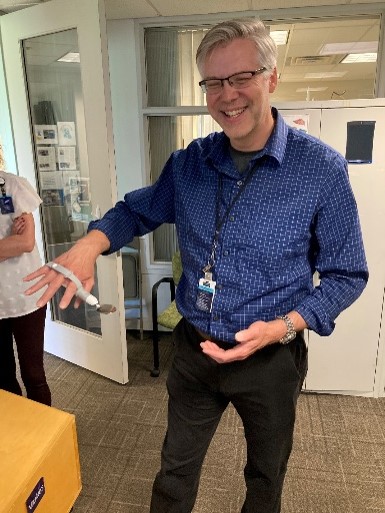
But one of the most interesting tools I saw is, in many ways, one of the simplest: a little plastic box that holds playing cards. What makes this so interesting isn't what it is, but how it's made: with a 3D printer.
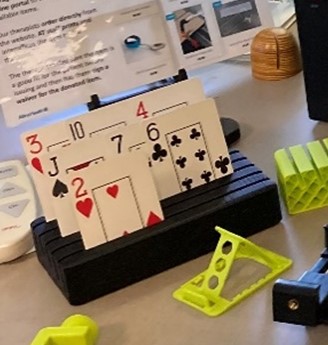
3D printing has already revolutionized product design, architecture, medicine, aerospace and education by making it faster, easier and cheaper to test prototypes. And today, 3D printing is making it easier to create solutions that meet the specific needs of individuals with disabilities.
3D printing enables the fabrication of adaptive tools and accessories that enhance accessibility. These tools can be designed to aid individuals with motor impairments, visual impairments or other disabilities. For example, custom grips for utensils or tools, tactile maps, Braille labels and adapted smartphone cases can all be produced using 3D printing. Courage Kenny's Innovation Lab prints a variety of tools that support their clients.
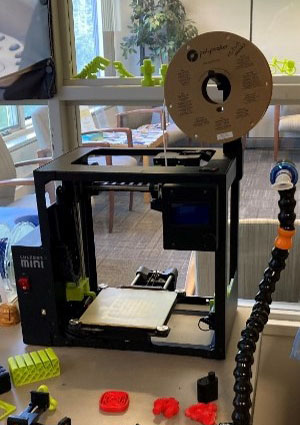
The open-source nature of 3D printing has led to a strong online community focused on designing and sharing accessible technology solutions. Now, you can go online and collaborate, share designs and improve existing solutions. This collective effort fosters innovation and expands the availability of accessible technology. It's also fast. Rather than waiting weeks for a product to ship to your door, you can download a pattern, print it and start using it.
I also visited the STAR (A System of Technology to Achieve Results) Program hosted by the Department of Administration. STAR serves as a lending library for accessible technology. You can try out a particular item or tool before committing to buy it.
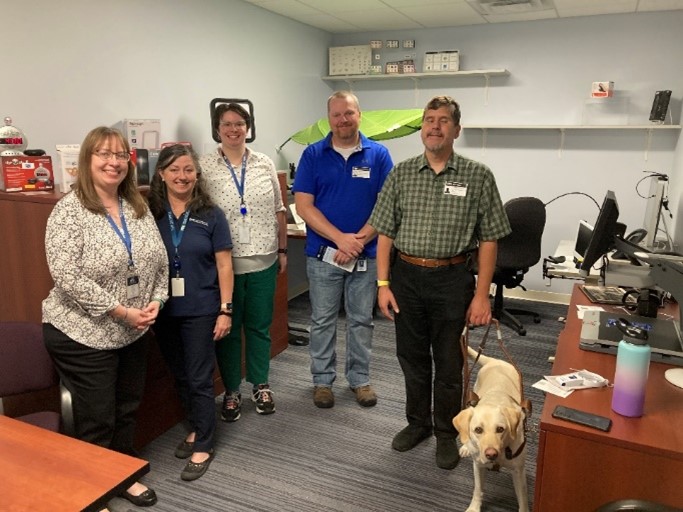
From left: Assistant Commissioner Betsy Hayes, Department of Administration; Amy Perron, STAR Program Director; E Walls, Assistive Technology Support Specialist; John Bredehoft, VRS Assistive Technology Lead; John Hess, State Services for the Blind (SSB) Assistive Technology Lead; John’s dog (and honorary SSB employee) Major
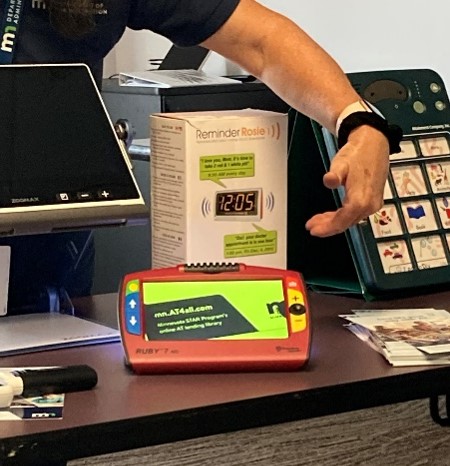
Amy demonstrates a high-contrast magnifier, which can be used by people with vision loss to read written materials more easily.
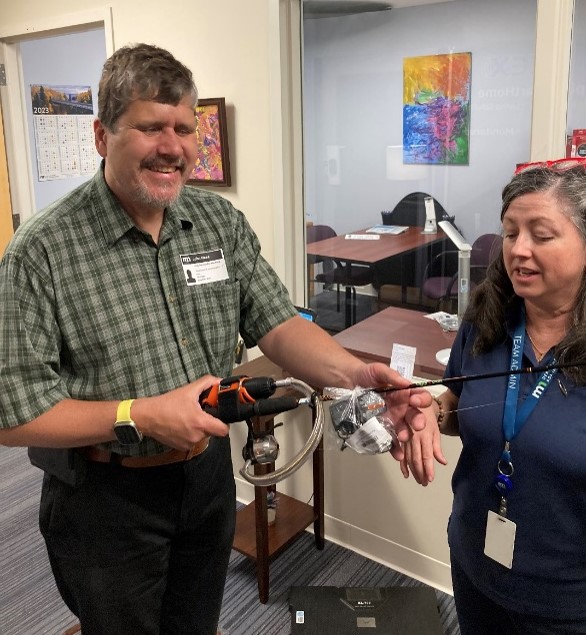
John Hess from DEED’s State Services for the Blind (SSB) team tries out an adaptive fishing pole that’s designed for one-handed use.
John Bredehoft on DEED's Vocational Rehabilitation Services (VRS) team joined me for both visits. John is an Accessible Technology specialist, helping clients identify technology solutions that improve their lives. VRS will be working with its partners throughout the state to increase opportunities for clients to use accessible technology, and make it easier to find and keep competitive, integrated employment and live better lives.
State Services for the Blind (SSB) and VRS are two incredible DEED programs that offer services to Minnesotans with disabilities to make life and employment more accessible. SSB assists Minnesotans who are blind, DeafBlind, losing vision or who have a disability that makes it difficult to read print by offering tools and training for employment, living independently and accessing print. VRS helps people with disabilities prepare for, find and keep a job, and live as independently as possible by offering services like job training, access to VRS counselors and more.